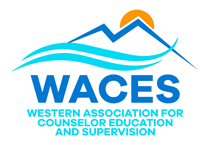Aims & Scope
Technology and Teaching
Pedagogy includes the art, the science, and the practice of teaching. Manuscripts within this section can be research based or theoretical in nature, with emphasis on the use and impact of technology on aspects of counselor preparation and teaching, and specifically how these influence student learning. This may include application of virtual reality simulations, technology-based assessments, learning management systems, distance learning models, hybrid teaching models as well as pedagogical models for technology-enhanced learning. Implementation of any technology-based intervention or technique should be grounded in existing literature and supported with empirical data from the authors on the effectiveness of the technique or intervention.
Technology and Supervision
Clinical supervision is defined as a formal and disciplined working alliance in individual, triadic, or group settings that focus on a supervisee’s clinical work. The manuscripts within this section can be research based or theoretical in nature, with emphasis on the use and impact of technology in various aspects of supervision. This may include application of theory, innovative techniques or supervision models, and factors related to the use or impact of technology on the practice and implementation of clinical supervision. Implementation of any technology-based supervision method or technique should be grounded in existing literature and supported with empirical data from the authors on the effectiveness of the technique or intervention.
Technology and Counseling Practice
Counseling practice centers on the working alliance and includes client characteristics, assessment, co-construction of goals, evidenced-based intervention and outcomes. The manuscripts within this section investigate the impact of technologies on the counseling process and outcomes. These manuscripts may be researched based and use quantitative, qualitative or mixed methods.
Emerging, Experimental and Current Topics Relevant to Technology in Counselor Education, Supervision and Practice
This section includes manuscripts that may be empirical or theory based, but can also include emergent as well as research and development (ie, R&D) topics specific to the design and implementation of new technologies to counselor education, supervision and practice. Manuscripts might also explore the larger scale impact of technology on mentorship, advocacy, education, and supervision in counseling. To the extent possible, all manuscripts in this section should be grounded in existing literature. Experimental and R&D manuscript should detail the development of the technology or method under investigation and may present preliminary findings.
Invited Conference Showcase Papers
We invite presenters of the Counselor Education Distance Learning Conference to submit showcase papers (word limit: showcase papers – 2000). Showcase Papers will be compiled to produce a conference proceedings section of the journal. The deadline for 2022 Counselor Education Distance Learning Conference Showcase paper submission is on March 18, 2022.


